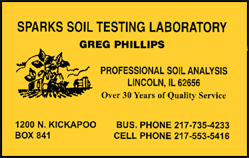| |||||||||||
| |||||||||||
The plant sources parts from about 180 suppliers
-- about 30 of which had no previous experience working with Volkswagen. The company has worked closely with the suppliers to ensure smooth delivery of parts, Fischer said. "We've gone back and supported them with personnel and know-how," he said. "The result is that we can make 500 cars a day, and that's a good feeling." The company had first planned to spend more time consolidating sales in the North American market before starting exports, but that timetable was accelerated and the U.S.-made Passat is now headed to Mexico, Canada, South Korea and the Middle East. "We would have liked to push that back, but it was decided that the timing made it critical to introduce the vehicles there," he said. A similar Passat is produced in China, but is limited to the domestic market there. The American Passat is available in 16 versions, ranging from the basic model to the 3.6 liter engine SEL that Fischer describes as having "all the toys." The U.S. version of the Passat is limited to a top speed of 122 mph, but Fischer said an American-made Passat retrofitted to German specifications showed no handling problems when he drove it at close to 150 mph there. Volkswagen subsidiary Audi announced this week that it plans to open a new plant in Mexico, dashing hopes in Tennessee that the Chattanooga facility might be chosen for an expansion. Fischer insists that regardless of Audi's plans, the Chattanooga plant will remain in the hunt for producing another model. Fischer said the corporate culture at Volkswagen promotes competition among its existing plants around the world. "Management here says we want a second model, and the plants are all competing with each other for one," Fischer said "Fundamentally, it would be a logical step."
[Associated
Press;
Copyright 2012 The Associated
Press. All rights reserved. This material may not be published,
broadcast, rewritten or redistributed.

News | Sports | Business | Rural Review | Teaching & Learning | Home and Family | Tourism | Obituaries
Community |
Perspectives
|
Law & Courts |
Leisure Time
|
Spiritual Life |
Health & Fitness |
Teen Scene
Calendar
|
Letters to the Editor